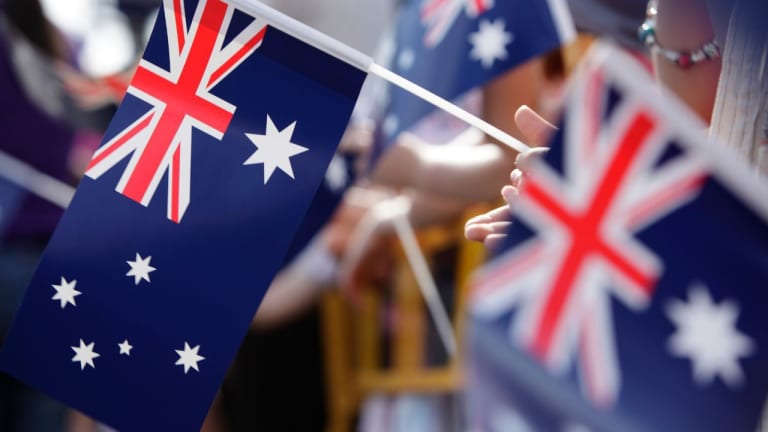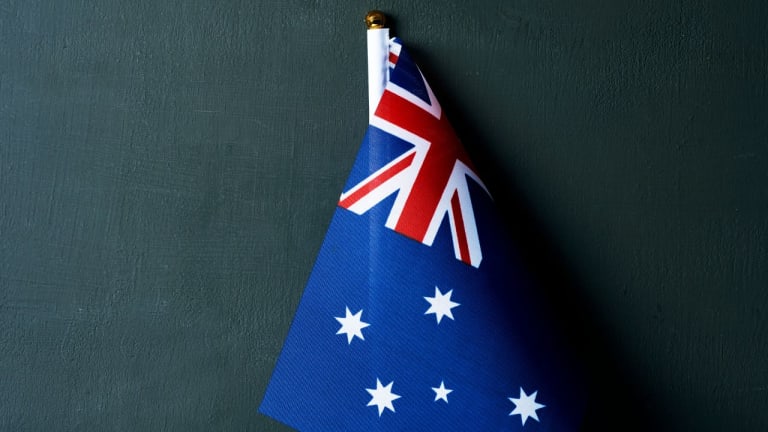
Australia Day 2024: Indigenous peoples mourn the past, protest injustice
On a day marked by debate surrounding Australia’s story of nationhood, Indigenous people gathered at daybreak in different localities to remember the past and mourn the loss of life and land.
For some, the public holiday of 26 January might be called Australia Day. For Aboriginal and Torres Strait Islander people, the date is remembered as Invasion Day or Survival Day – commemorated as a day of mourning.
Earlier today, First Nations people took part in Aboriginal smoking ceremonies across Australia to honour their elders and ancestors and reflect on “the cost of colonisation” to their communities. Later, rallies are expected in key cities months after Australians voted against a proposal to increase Indigenous peoples' representation in the Parliament.
READ MORE | Australians reject ‘Voice to Parliament’
A retelling of history
When the British landed in Sydney Cove in 1788, a century-long period of colonisation began. British settlements grew across Australia, and Indigenous communities – which had inhabited the land for more than 50,000 years – were violently forced into the margins. After having been displaced and dispossessed, the First Nations people struggled to survive on scant resources and many of them died of starvation and malnourishment.
At a solemn commemoration today, Aboriginal Australian Nikki Foy from the Wadawurrung country listened to the elders who recounted their ancestors’ experience. They gathered by the lake in the early hours of the morning to bring light once again to their shared struggle.
“It doesn't matter what day people call it; it's just a very solemn day to come and sit in reflection,” Foy told ABC News.
This is echoed by Jason Briggs, a Boon Wurrung and Wamba Wemba elder. He believes the process of healing requires acknowledging the past.
“We’ve got to look forward to a pathway that takes us and brings us to a place where we can engage in a better dialogue about resolving issues, differences [and] reconciling outstanding matters,” Briggs said.

Retelling stories of 26 January has become an integral part of why Australians still choose to mark this day.
For Noongar elder Dennis Kickett – whose community led three days of storytelling with Indigenous people – this day opens up an opportunity to come together and understand the significance of historical events. “We live in the same community, and we’re all striving for the same things,” Kickett told the BBC.
“There's no point segregating ourselves. On that date, we will have an audience, so why not educate them?”
Kickett knows his push for a celebration could draw criticism from members of the community who want to throw light on the healing of old wounds, instead of demonstrating “patriotic pageantry,” deemed by many to be a remnant of Australia’s colonial past.
READ MORE | View from the Top: Shelley Reys AO of Arrilla Indigenous Consulting
Businesses opt out of Australia Day
While questions continue to arise over the practice of celebrating Australia Day with merriment and barbecue parties – as had been customary since it became a national holiday – a number of businesses are, in fact, shifting away from capitalising on the date due to a change in sentiments.
For one, retail giant Woolworths cited a “gradual decline” in the demand for Australia Day merchandise. The downtrend reportedly prompted the company to discontinue holiday-themed items such as clothing and accessories. Aldi and Kmart have also veered away from promoting the day in a consumerist fashion.
In the workplace, Australia’s top employers – namely ANZ, Commonwealth Bank, Qantas, Telstra and Atlassian – are giving staff the option to come in and swap out the holiday with an alternative time off.
READ MORE | Can my employees come to work on Australia Day?
Australia Day is ‘not a date to celebrate’
More than half of Australians are in favour of changing the date of the public holiday, according to 2021 poll by the ABC. The controversy, however, extends beyond what date it is pinned on the calendar.
Many more are calling for the abolition of the celebration altogether, with today's protest march to Victoria Park in Sydney resonating that call.
In Melbourne, thousands have gathered to express outrage over the history of brutality associated with the day.
“We believe that there is no day in the calendar [to suggest] that massacres and violence didn't happen,” said Tarneen Onus Browne, in a report by ABC News. She represents Warriors of Aboriginal Resistance, a group that demands an end to festivities around 26 January.
“Australia Day is not a day to celebrate,” they said. “It is an annual reminder of invasion, occupation, genocide and the ongoing impacts of colonisation that continues to destroy our lives, our lands and our waters.”














